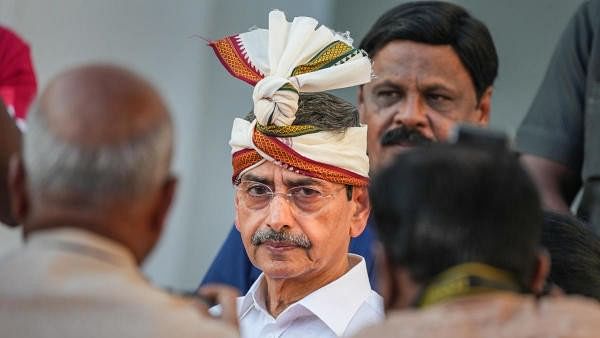
Tamil Nadu Governor R N Ravi.
Credit: PTI Photo
New Delhi: The Tamil Nadu government has approached the Supreme Court seeking a direction to the state Governor to appoint K Ponmudi as a member of the Legislative Assembly and administer oath of office to him as the Higher Education Minister after the suspension of his conviction in a disproportionate assets case by the top court.
The Governor's refusal to accede to the Chief Minister's request is unconstitutional, illegal and a clear act of contempt of court, the representation by the state government contended.
Senior advocate A M Singhvi for the state government mentioned the plea for urgent hearing before a bench led by Chief Justice of India (CJI) D Y Chandrachud who agreed to examine the request.
In an application, the DMK government questioned the stand taken by the Governor on March 17 in his letter to the Chief Minister's missive on March 13 that the conviction of Ponmudi has only been “suspended, not set aside” and therefore the leader could not be appointed as Minister.
It also assailed the Governor's stand questioning the suitability of Ponmudi for appointment as minister as he is “tainted of corruption” and that his appointment would be against “constitutional morality”.
In its plea, the state government said, "It is well settled that when it comes to the appointment of a Minister, the suitability of the person to be appointed is assessed only by the Chief Minister who alone has sole discretion to choose a person as Minister. It is now well settled that a Governor cannot decide who should be a Minister on moral grounds or any other grounds. That sole prerogative is with the Chief Minister."
The state government said the decision to choose a person against whom criminal cases are pending has been left to the Prime Minister and the Chief Ministers by the top court in the case of 'Manoj Narula Vs Union of India' (2014).
The representation for the state submitted that the Governor, by refusing to accede to the Chief Minister’s request to appoint Ponmudi as the Higher Education Minister, was in breach of Article 164(1) of the Constitution.
"The Governor is attempting to run a parallel government and is attempting to choose ministers as per his subjective assessment of suitability, which is impermissible," the plea said.
It contended that when the apex court had categorically held that Ponmudi's conviction had been suspended to avoid disqualification under the RP Act, 1951, the interpretation given by the Governor by acting as if he was a super appellate authority was a blatant violation of the order of the court.
“The Governor is bound by the orders of this court under Articles 142 and 144 of the Constitution of India," the plea said.
